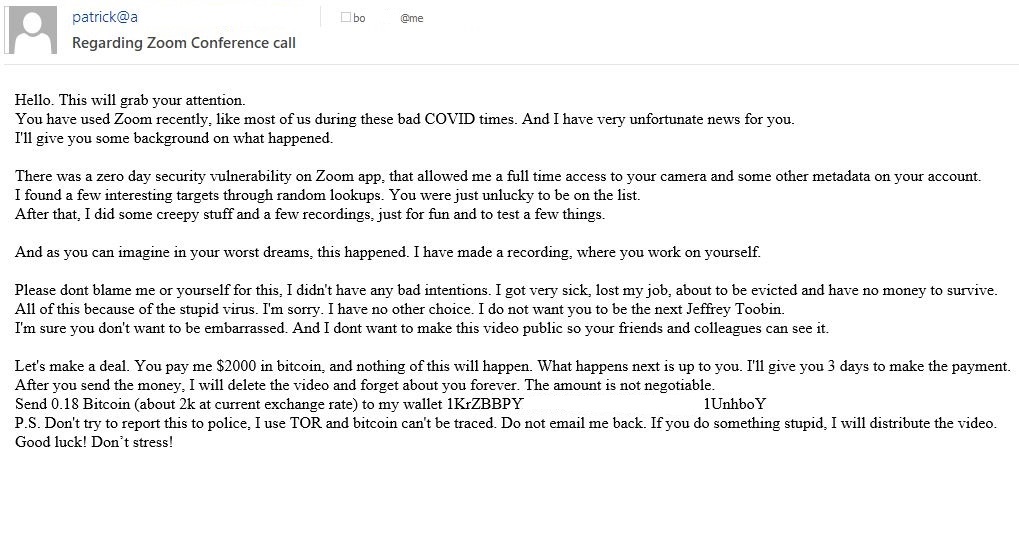Zoom blackmail scam threatens to reveal private videos — what you need to know
Sextortion email claims to see you being naughty

A newly identified Zoom scam is warning users to pay up or become "the next Jeffrey Toobin".
Spotted by Bitdefender Antispam Lab, and reported on its Hot for Security blog, the sextortion scam has been active since at least Oct. 20. It has targeted around 250,000 people, mostly from the U.S., with threats that the scammer has footage of the victim "working on yourself".
- How to set up a Zoom meeting
- Need a new work or home device? There are the best laptops
- New: Apple One launches today — here's why I'm signing up
If you've received one of these emails, don't worry. Just delete it and report it to the authorities so the perpetrator can be caught.
If you haven't, this is what it looks like, with the innocent-sounding subject line "Regarding Zoom Conference call" making it look fairly inconspicuous.

The message makes use of a lot of very timely elements to try and convince users to pay up for the non-existent kompromat. It references COVID-19 and the sender's unemployment and impending eviction as the reason why they have had no choice but to extract money from you.
Zoom has become very popular in the last several months in order for businesses to continue normal function, and several Zoom security issues have been widely reported.
There's also a mention of Jeffrey Toobin in the email, a timely reference to the New Yorker columnist and legal expert who was caught on Zoom by colleagues "working" in a similar way to what the scammer is describing.
Sign up to get the BEST of Tom's Guide direct to your inbox.
Get instant access to breaking news, the hottest reviews, great deals and helpful tips.
Taken together, this all helps the email sound more convincing. In return for disposing of the alleged footage, the scammer asks for $2,000 in Bitcoin within three days. Otherwise they'll send what they have to your colleagues and friends.
Of course, there is very likely no footage at all. These emails, and many similar scams before, are sent out at random in the hope of finding someone who'll be convinced enough to pay. The addresses will have been taken from other data breaches, so there's no new security risk from them having these emails.

Richard is based in London, covering news, reviews and how-tos for phones, tablets, gaming, and whatever else people need advice on. Following on from his MA in Magazine Journalism at the University of Sheffield, he's also written for WIRED U.K., The Register and Creative Bloq. When not at work, he's likely thinking about how to brew the perfect cup of specialty coffee.
